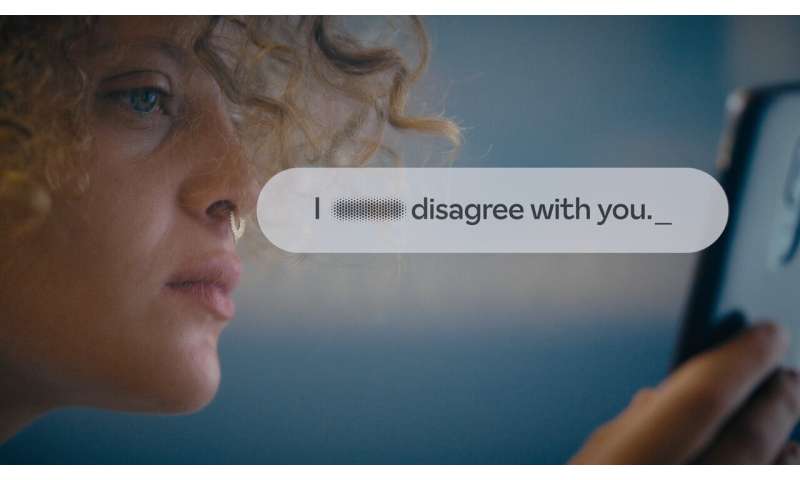Finnish 'Polite Type' font combats cyberbullying
Finnish 'Polite Type' font combats cyberbullying

A Finnish tech company has released an unusual tool to help combat cyberbullying: a type font.
A team composed of specialists dealing with bullying, racism and other forms of intolerance devised a font that blurs out obscene words and replaces other hurtful words with gentler ones. The open source font works with popular word processors.
For instance, if a user attempts to type "I hate you," the sentence will automatically change to "I disagree with you." Typing "She is ugly" is changed to "She is not traditionally beautiful."
Derogatory racial terms are changed to the proper name of the race or religion. Explicit obscenities are blurred out.
Less offensive terms are altered. "You are stupid" is changed to "You are silly." Other insulting terms such as "dumb" and "idiot" are blurred out.
The font is called The Polite Type.
"Our purpose is to promote equality and inclusion" according to Kia Haring, global head of communication and sustainability at tietoEVRY, the company that developed the font. "We want bullies to rethink the words they use and the actual meaning behind them… The Polite Type supports our vision of creating a safe and equal environment with digital solutions."
Tieto means knowledge in Finnish.
Cyberbullying has grown to epidemic proportions. According to a recent United Nations report, a third of young children say they have been bullied online. More than 35 percent of cyberbullying victims suffer anxiety as a result, says tietoEVRY, and a fifth say they lose sleep because of such worries.
One in five said they skipped school as a result of bullying.
The team behind The Polite Type states that quarantine measures instituted in the wake of COVID-19 have made the problem of online bullying worse. As students around the world turned more to digital classrooms online, they have lost personal access to teachers and counsellors whom they turned to in the past for help with problems.
"As people could not meet in real life, feelings of isolation increased, which may have made people more vulnerable to cyberbullying," the team states.
Haring stated, "Bullying is especially damaging when it comes to children and young people. Young people don't have the same psychological tools as adults do to deal with hateful comments, and it can leave long-lasting emotional scars."
The 1,800-word vocabulary used in The Polite Type was compiled by tietoEVRY along with Finnish teenagers and organizations such as the Children and Youth Foundation that promote diversity, inclusion and anti-racism.
The Polite Type team understands that some may question the idea of squelching speech even when done to accomplish good ends.
"We believe the right for freedom of speech includes the right to disagree," the group's mission statement says. "But hate speech is not a valid way to voice disagreement. We want bullies to consider their actions online."
They add that their long-term objective is to make permanent, if small, changes for a better world: "We believe that with our capabilities, responsible use of technology, and in collaboration with our community, we can create a brighter future where diversity and inclusion are the norms."
MMW


Comments
Post a Comment